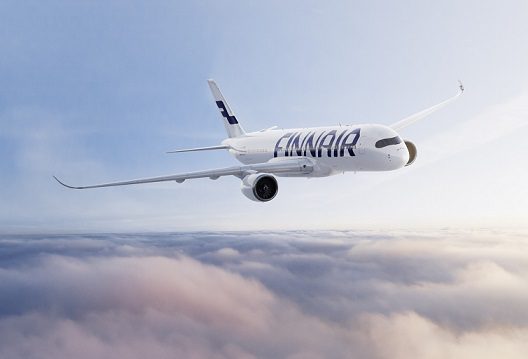 As the shadows of the COVID-19 pandemic fade away, European airlines are beginning to spread their wings again, displaying remarkable resilience and an optimistic outlook. Among the airlines leading this aerial renaissance are Portugal’s TAP and Finland’s Finnair, which have reported encouraging figures in their Q3 financial reports, signalling a potential return to pre-pandemic prosperity.
As the shadows of the COVID-19 pandemic fade away, European airlines are beginning to spread their wings again, displaying remarkable resilience and an optimistic outlook. Among the airlines leading this aerial renaissance are Portugal’s TAP and Finland’s Finnair, which have reported encouraging figures in their Q3 financial reports, signalling a potential return to pre-pandemic prosperity.
Amid these promising developments, Jared Ailstock, Managing Partner at AIP Capital, offers expert commentary on the multifaceted challenges the aviation sector continues to navigate. His insights shed light on the industry’s ongoing journey towards recovery, highlighting the significance of the recent advancements while acknowledging the hurdles that lie ahead.
Portugal’s TAP, the pride of the nation’s fleet, has showcased a stellar performance in the first nine months of 2023, culminating in a 62% increase in profits during Q3 alone. This impressive trajectory is noteworthy as it precedes the airline’s planned privatization, marking a pivotal moment in its corporate saga. Concurrently, Finland’s Finnair is flying high with predictions of its annual sales nearing the heights of pre-pandemic times, forecasting an annual revenue in the ballpark of €2.9 to €3.1 billion.
A spokesperson for Finnair confidently stated, “The Covid-19 impact has faded,” encapsulating the newfound optimism permeating the European aviation landscape. This bold declaration is not just an isolated sentiment but is echoed by the rising tides of profitability and capacity returning to the sector, reminiscent of the pre-Covid era.
Yet, the journey is not without its turbulence. Ailstock, a seasoned expert from AIP Capital, emphasizes the need for ‘cautious optimism’ as the aviation industry ascends into the new year. The sector is currently grappling with unprecedented challenges, ranging from supply chain bottlenecks to soaring fuel prices, leaving an indelible mark on airline profitability.
Labor and fuel costs have emerged as the most formidable adversaries in this scenario, significantly denting airline profits. The supply chain conundrum has exacerbated the situation, slowing down aircraft production and contributing to a looming engine crisis that could potentially disrupt airline operations on a grand scale. Earlier this year, the aviation industry witnessed the grounding of 1,200 Pratt & Whitney engines on Airbus A320neo jets for inspections, highlighting the precarious state of aircraft availability, with an estimated 350 aircraft projected to remain idle until 2026.
Cirium’s data further illustrates the magnitude of the challenge, with approximately 370 aircraft, ranging from Airbus A320neos to 737 Boeing Max jets, currently classified as ‘stored’ due to engine repair issues. RTX, a US-based engine manufacturer, recently added to the industry’s woes by announcing a rare manufacturing flaw, potentially grounding hundreds of Airbus jets in the coming years. This, coupled with severe staff shortages and escalating ‘tug-of-war’ over engines between aeroplane factories and repair shops, paints a challenging picture for the industry in 2024, with around 650 jets expected to sit idle in the first half of the year.
In light of these pressing issues, asset management firms like AIP Capital are stepping up to address the bottlenecks in the supply chain, particularly in engine repairs, to ensure the aviation industry continues its upward trajectory. Ailstock is poised to provide valuable insights into these critical challenges, offering a comprehensive outlook on the fuel crisis, rising labour costs, supply chain disruptions, and the innovative strategies airlines are adopting to diversify revenue streams and bolster profitability.
In this pivotal moment for European aviation, the skies are brightening, and the future is taking flight. With resilience, innovation, and a strategic approach, the industry navigates the post-Covid turbulence, charting a course towards stability, growth, and success.
Written by: Christine Nguyen



















